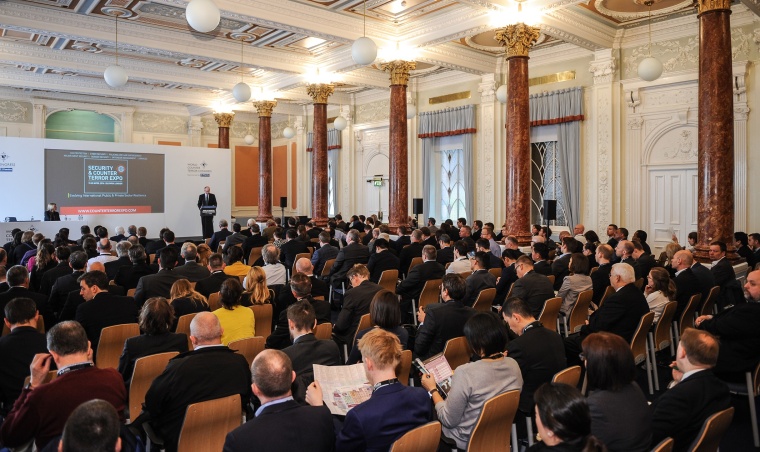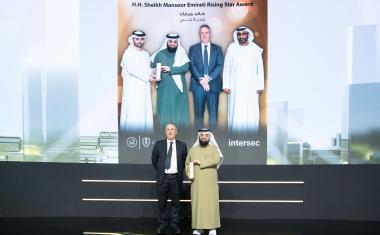Counter Terror Congress: Preview
Counter terrorism remains very much in the spotlight, with extremist groups such as the so-called Islamic State continuing to target civilians around the globe. Over the last year ...

Counter terrorism remains very much in the spotlight, with extremist groups such as the so-called Islamic State continuing to target civilians around the globe. Over the last year there have been high profile attacks in Normandy, Nice, Paris, Istanbul, Berlin and New York, while bombings across the Middle East continue to be frequent.
Facing Terrorism in Europe
Despite these attacks, Europol’s European Counter Terrorism Centre has been widely acknowledged as helping thwart numerous other atrocities on the continent. The organisation claims that information sharing, across European countries as well as through and with Europol, reached an all-time high by the end of 2016. It now holds more than 10 times as much information on ‘person entities’ in its database, compared with when the attack on Charlie Hebdo took place.
127 counter terrorism operations took place in Europe last year, highlighting the sheer scale of the problem facing security professionals. While the country targets themselves remain those that participate in the anti-IS coalition, today nations face a range of threats and attacks – from highly organised and networked groups to lone actors. Not only that, the weapons themselves evolving and now include the use of traditional explosives and automatic rifles, through to the recent use of vehicles.
World Counter Terror Congress
With France remaining high on the target list for IS aggression, along with the UK, US, Belgium, Germany and The Netherlands, security professionals from these regions will travel to London in May to attend the annual World Counter Terror Congress. Over two days, government officials and private security companies will discuss future threats and shape the world’s counter terror strategy.
With topics ranging from terrorist funding, counter radicalisation tactics, the emerging threats, privacy and technology, 20-plus high ranking officials and academics will lead the congress, providing invaluable trends and information to more than 400 attendees.
Trump, Counter Terror Strategies and Extremism
Among the speakers will be Sir Malcolm Rifkind, the former Foreign Secretary and Chairman of the Intelligence & Security Committee of Parliament, who will discuss the first 100 days of the Trump administration.
He commented: “One man driving a lorry into a crowded market represents a new era in terrorism and it is a challenge all Western nations face. We need to ensure security professionals from across the world are aligned in helping to reduce the risk to civilians and I’ll be monitoring how the US intelligence agencies evolve under the leadership of President Trump with interest. What’s vital is that we continue to share information and best practices with our allies, which is what the World Counter Terror Congress is designed to do.”
Rob Wainwright of Europol will also feature on this year’s programme. He will discuss European cooperation on security and present the organisation’s views on counter terror strategy in an uncertain geopolitical climate. Additionally, Mark Rowley, Assistant Commissioner of the Metropolitan Police, is expected to discuss extremism and the international and home-grown threats to the UK.
Richard Walton, the former head of the Met's Counter Terrorism Command (SO15) and now an adviser to the Security & Counter Terror Expo, said: “The threat facing the UK and other nations is, and will remain, high for the years to come. Security professionals must use the World Counter Terror Congress to develop their understanding of where the threats are coming from and identify ways that they can be prevented – a multi-faceted intelligence-led approach is the only way to stop attacks in the future from happening.”
Six Sessions
The World Counter Terror Congress will feature six sessions, covering policy and strategy responses to the changing terror threat; radicalisation, de-radicalisation and preventing radicalisation; geopolitical security briefings; encryption, communications and security; security for critical national infrastructure; and emerging terror networks and tactics.
Among those confirmed to speak are Lord Carlile of Berriew CBE, QC; Rob Wainwright, Director at Europol; Dr Jamie Shea, Deputy ASG, Emerging Security Challenges Division, NATO; Raffaello Pantucci, Director of International Security Studies, Royal United Services Institute (RUSI); and Thomas Wuchte, Head on Anti-Terrorism Issues, Action Against Terrorism Unit, Organisation for Security & Cooperation in Europe (OSCE).
The congress will take place within the internationally renowned Security & Counter Terror Expo. Supported by the Home Office, the event will showcase the best counter terror and security solutions from around the world.
In addition to the World Counter Terror Congress, there will be a series of specialist free-to-attend conferences at Security & Counter Terror Expo focussing on the Critical National Infrastructure & Business Resilience, Cyber Threat Intelligence – presented by techUK, and Border & Transport Security Live as well as a Counter IED zone and Advanced Technologies Live theatre.
Security & Counter Terror Expo 2017 is co-located with Ambition – the EPRR Expo – and Forensics Europe Expo.













